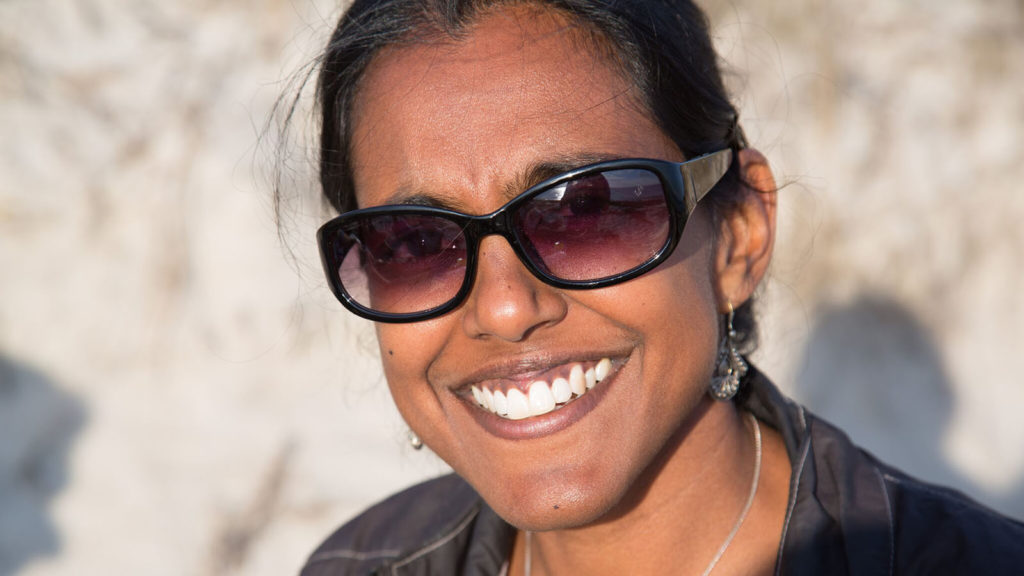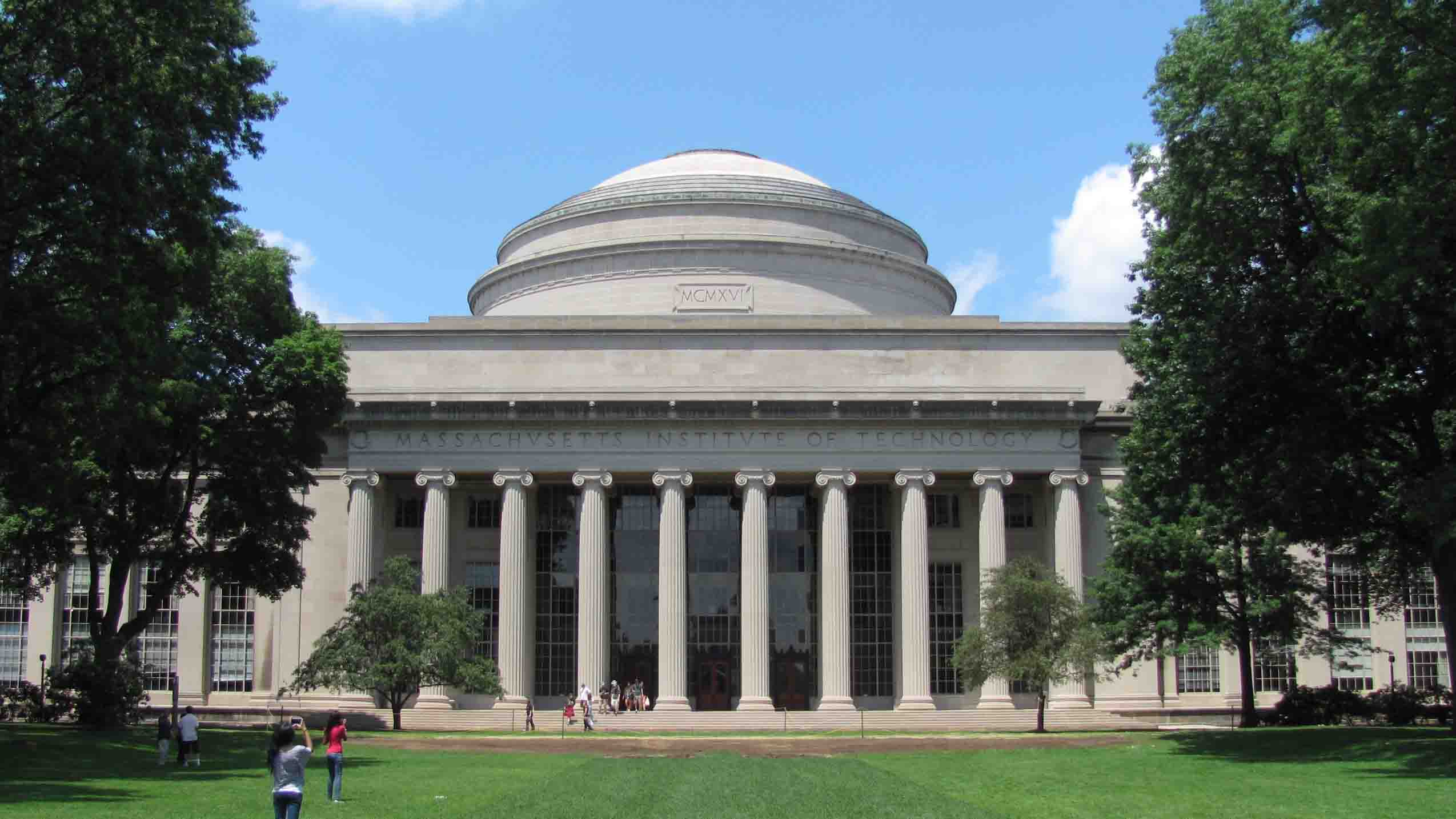In the effort to contain COVID-19, science journalists around the world are stepping up to do their part. As some journalists grapple with the science behind virology and epidemiology studies, others are telling the stories of lives affected by the virus. In the process, they are exploring ways in which the unfolding pandemic is changing the world — and informing the interventions that might save it.
One such science writer is former Knight Science Journalism Fellow Sujata Gupta (‘18). As the first dedicated social sciences reporter at Science News, Gupta has been covering beats like sociology and human behavior, subjects with reputations for being difficult to interpret and contextualize. But Gupta finds learning and writing about societal phenomena in an evidence-based way to be an exciting challenge. The beat has given her space to write about neighborhood gentrification, childhood anxiety, and scientific research in authoritarian regimes, among other topics.
Lately, Gupta has turned an eye toward the social inequalities being thrown into sharp relief by the coronavirus pandemic. She was one of the first reporters to write about the mental health effects of social distancing, and how the elderly are particularly vulnerable to the consequences of isolation. She’s also written about racial disparities, and how the pandemic is likely to affect African Americans worse than white Americans. Recently, I talked with Gupta about the challenges of reporting on social science during a pandemic. (The following interview has been edited for length and clarity.)
Zain Humayun: You were one of the first reporters to investigate the mental health effects of social distancing. What was that like?
Sujata Gupta: When I reported it, it was pretty early and the people I spoke to said, “You know what? We can, we can weather this, it’s a few weeks, maybe a month, maybe six weeks, humans are really resilient.” And then it took — just because everything was moving so fast — it took a few weeks for us to get that [story] off the ground. And in the meantime, it became very clear that this was going to last a much longer time. And so I did some re-interviewing. And I got this email back. And it was just like, you know, if it lasts three months or more, and this is the likely scenario, then we’re going to see sort of an unraveling of society. And I just remember that quote, because we were heading there. So that was the sort of genesis of that story.
ZH: You’ve also written about how African Americans are especially vulnerable to COVID-19. Were you surprised by what you learned?
SG: What I will say about that story, and this is going to be a really bold-faced statement I suppose, but there’s been this whole movement in the world of climate change to talk about climate change without the [opposing viewpoints] — there are no two sides to it, climate change is real, and just sort of getting that out of the way and then moving on to the story at hand.
And with race, I’m finding that I write about it and I always have to use disclaimers — like, you know, people who belong to black groups feel marginalized or a history of discrimination, which makes it sound like something in some historic past that’s not true today. [But] the more I read about this space, in every single study I come across, it’s literally true that racism is true, and it still continues on into this day. And it would be really a lot easier, for my beat, to just put that out there as a truism, and then I don’t have to devote so much energy to framing it in a way to avoid discomfort, to sort of walk around the issue.
I personally am at the point where I’m like, there’s just too much evidence to ignore that there are these huge disparities in society.
ZH: There’s no shortage of reporters covering the pandemic. With so much reporting, how do you generate new story ideas?
SG: A lot of it just comes from interviewing. The more you talk to people, the more you find out what projects they’re working on, or how their research has been upended in a certain way. A lot of times those researchers will provide clues to focus on.
I also look a lot at Twitter. It’s funny, I’m a horrible Twitter user and I really need to create lists or something to organize the massive feed that I have coming at me. I’ve been really interested in covering the economy a little bit better so I’ve been following a lot of socioeconomists.
ZH: Are you specifically pitching COVID stories? Or are you mostly just covering your regular beat and if a study just happens to have a COVID angle, you might frame it like that?
SG: I really can’t do the latter for the most part, because I cover society and [the coronavirus pandemic] is what is impacting society — and it’s certainly impacting the researchers’ ability to do their work. The other thing that seems to be happening is that people are reading a lot about coronavirus, and they then also read a lot about just something totally unrelated, like Mars. The stuff in between … those stories are going to get a little bit lost right now.
I definitely am at least 50 percent [coronavirus], in my head, for what I should be doing week to week. Honestly, I just sort of hope that the major journals will put out a social science study that I can cover that’s unrelated and that’s also somewhat feel-good, which doesn’t happen all that much. But [when it does] that makes my life a little easier so I can focus on the longer pieces. Because you know, understanding what’s going to happen to the economy or to schools, or to church attendance is not an easy question to answer. It’s going to take me a little time.
ZH: Many people who are privileged enough to stay at home are using the opportunity for reflection. Have you been thinking about what it means to be a journalist in this time?
SG: I feel, personally, that it’s the only way right now that I can give back at all. I mean, we’re all stuck in our homes. I’m also extraordinarily busy with two small children, so it’s hard to do any sort of volunteering. So for me, being able to write about [the pandemic] in a meaningful way feels super important. I know my reach is limited, but nonetheless, just being able to research some stories that I think aren’t getting out there and put those out in the world has been I think … I don’t know … I’ve been a journalist for a long time and this feels like part of the reason I went into this in the first place — to somehow make society a little better. So yeah, the short answer is yes, I can feel pretty good about being a journalist right now.





Leave a Reply